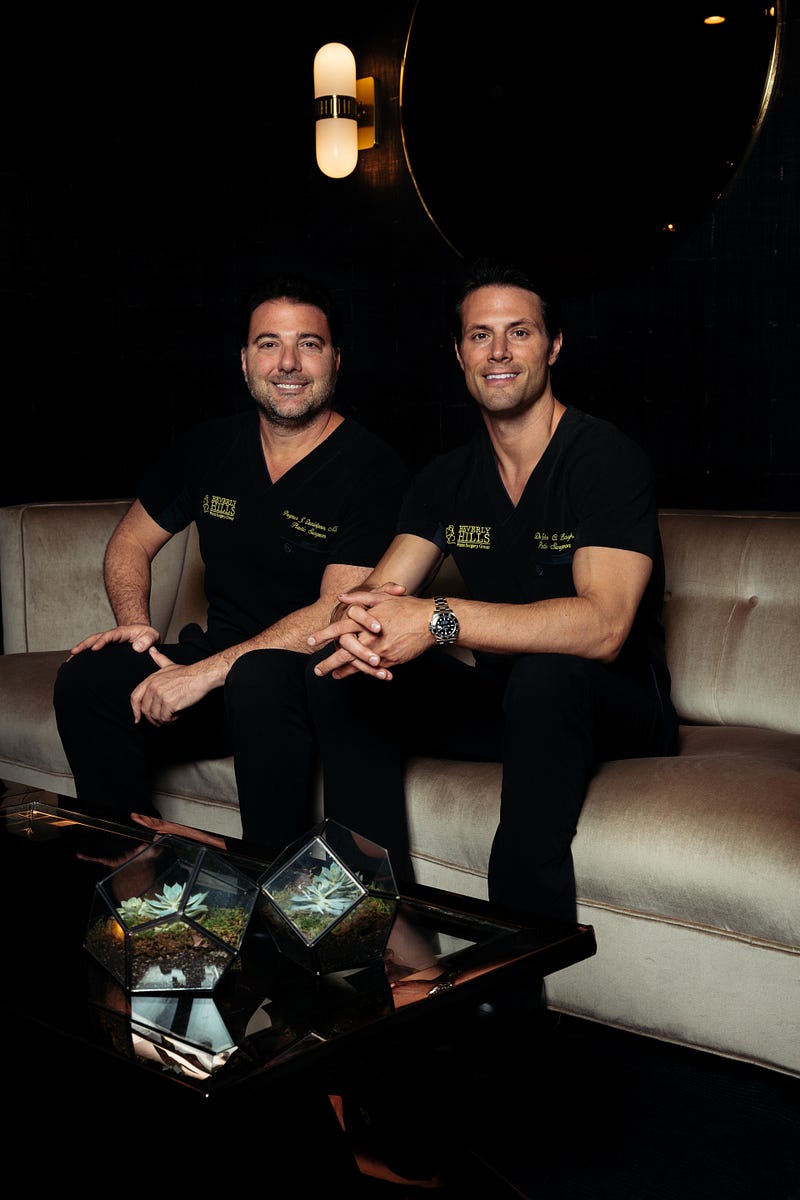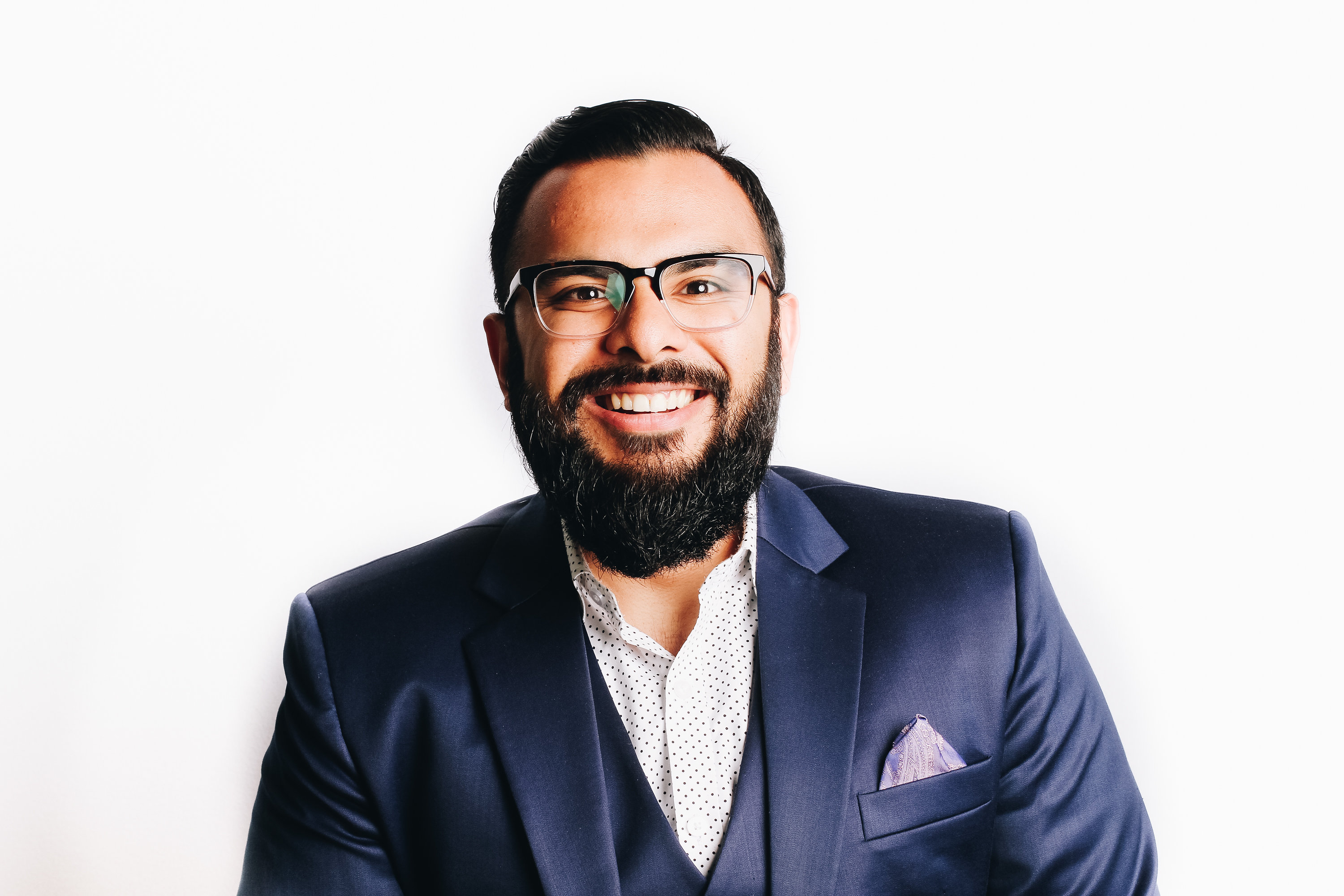As a part of my interview series with prominent medical professionals about “How To Grow Your Private Practice” I had the pleasure of interviewing Dr. John Layke and Dr. Payman Danielpour.
Dr. John Layke and Dr. Payman Danielpour are plastic surgeons, co-founders of the Beverly Hills Plastic Surgery Group and Beverly Hills MD, a cutting-edge skincare line that blends cutting edge dermal technology and natural skin care ingredients to offer real cosmetic results using non-surgical anti-aging solutions. Dr. Layke specializes in rhinoplasty, eyelid surgery and facelift procedures, and Dr. Danielpour specializes in body and breast procedures. The two doctors have been on the forefront of plastic surgery and cosmetic technology for nearly a decade and work jointly on each patient, which allows for more procedures per session and increased safety and efficiency. As top cosmetic surgeons based in Beverly Hills, the pair boast a diverse clientele that also includes celebrities and reality TV stars.
Thank you so much for joining us! Can you tell our readers a bit about your ‘backstory”?
Definitely! Dr. Danielpour and I became friends approximately 13 years ago when we kept seeing each other on the “interview trail” for plastic surgery residency. We eventually were accepted to the same residency program, became roommates, and ultimately, best friends. Being a native of Wisconsin, I was planning on heading back to the Midwest (Chicago), where I had completed my general surgery residency. Dr. Danielpour, a Beverly Hills native, offered a much more appealing option, and that was to start a practice together in the heart of sunny Beverly Hills! I gladly accepted the offer and never looked back. We now have a thriving practice in the “Golden Triangle” of Beverly Hills, a well-sought after area that houses many prominent plastic surgeons.
What made you want to start your own practice?
We trained in a hospital system with one of the oldest, and largest, private practices in the country. This allowed us to see both aspects of plastic surgery — hospital-based, as well as private practice. We chose to be our own bosses and hustled to build what we currently have.
Managing being a provider and a business owner can often be exhausting. Can you elaborate on how you manage both roles?
Great question! Doctors are notoriously bad when it comes to being business-minded. We made several mistakes along the way, but continued to learn the “art” of business. I am the one who pushes to be “cutting edge” and buy all of the new tech that comes our way, and Dr. Danielpour evaluates the finances and ROI potential and we come to a mutual agreement. It’s a great balance.
As a business owner, how do you know when to stop working IN your business (maybe see a full patient load) and shift to working ON your business?
I think when you start seeing the same mistakes being made over and over, it’s time to pump the brakes and dissect where a problem begins. We fully realize that every successful business needs admin time. As much as we would love to be operating all day long, we also see the benefit of making sure that all of the moving parts are working in concert.
From completing your degree to opening a clinic and becoming a business owner, the path was obviously full of many hurdles. How did you build up resilience to rebound from failures? Is there a specific hurdle that sticks out to you?
I think residency prepares you for that. Every day you have to be prepared for what lies before you, the physical and mental exhaustion is reality, you’re pushed to the limit by your mentors, and you are expected to retain knowledge and skill at a superhuman rate. The reality is, it is analogous to a boxer training for the biggest fight of his life. By the time you make it there, you have to be ready.

What are your “5 Things You Need To Know To Grow Your Private Practice” and why?
- You have to be prepared to hustle — many of the younger plastic surgeons come out of residency thinking that they will only do cosmetic surgery. Big mistake. Take calls at the nearby emergency rooms, establish a patient base, and the rest will come.
- Make relationships with local docs — there is no better referral than from another physician.
- Keep your overhead low for as long as you can — you don’t have to start a practice with your own office. “Piggy back” off of another physician, sublease space, and when you have established yourself, go where you want!
- Find the right staff — sometimes you need to wait to choose the right individuals who will love nothing more than to see you succeed. Find a few of them and treat them well!
- Be humble — you can learn from every patient encounter, and from every physician you meet. You aren’t the best until your peers tell you that you are.
Many healthcare providers struggle with the idea of “monetization”. How did you overcome that mental block?
Currently, the majority of our practice is cosmetic surgery, which is a cash business. Unfortunately, insurance companies have ruined medicine. I think as a whole, physicians have come to terms with that reality.
What do you do when you feel unfocused or overwhelmed?
I need physical activity to “reset” my mind, body, etc. I exercise 3 days/week at a high-intensity level. This allows a release that keeps me going. Dr. Danielpour goes on several hikes/week and uses the outdoors to serve as an outlet.
I’m a huge fan of mentorship throughout one’s career — None of us are able to achieve success without some help along the way. Who has been your biggest mentor? What was the most valuable lesson you learned from them?
I have several that come to mind but I will narrow it down to two: Vijay Maker, MD, who was my general surgery Residency Chairman. I learned his passion for the field of surgery and he taught me to look at every patient for what they were: human beings. The next is Loren Schechter, MD, who took me “under his wing” when I decided to emulate him in the field of plastic surgery.
What resources did you use (Blogs, webinars, conferences, coaching, etc.) that helped jumpstart you in the beginning of your business?
Other physicians. We chose to speak to a few successful plastic surgeons in the area who gave us their “pearls.”
What’s the worst piece of advice or recommendation you’ve ever received? Can you share a story about that?
The worst piece of advice I’ve ever heard was to find an area in the country that needs you, and then start a practice there. This was advice given at a resident conference by a practice consultant. I firmly believe that you choose the area you’d like to live, and then build your practice there. It makes no sense to make $1M/year in an area that you’re miserable.
Please recommend one book that’s made the biggest impact on you?
Shantaram by Gregory David Roberts. It’s a colorful, but true, story about a man that lives breaks out of a New Zealand prison, travels to India, and lives in the most poverty-stricken slums to the wealthiest of places, and highlights the ups and downs during each period. It reminds me that no matter where you are, you can see good in anything if you truly put forth the effort.
Where can our readers follow you on social media?
Instagram: @officialbhmd
Twitter: @bhillsmd
Facebook: @BevHillsMD

For other incredible interviews, please check out our podcast: Healthcare Heroes.
A special thanks to Dr. Layke and Dr. Danielpour again! The purpose of this interview series is to highlight the entrepreneurs, innovators, advocates, and providers inside Healthcare. Our hope is to inspire future healthcare providers on the incredible careers that are possible!
Stay in the loop — Follow NPHub to get the latest updates when we post new interviews: Facebook, Instagram.


